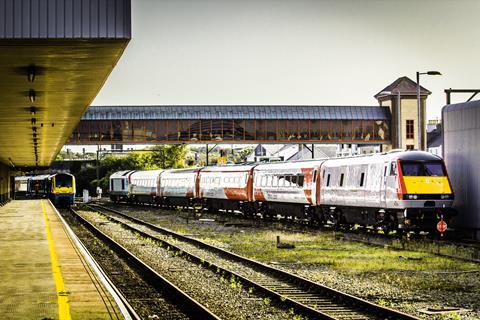
UK: Publicly-supported flights between Cardiff and Anglesey will not resume, the Welsh government has announced, with rail offering a viable alternative and the funding to be used to improve public transport in North Wales.
The twice-daily flights operated by Eastern Airways under a Public Service Obligation contract were suspended in March 2020 because of the pandemic.
Announcing on June 8 the flights would not restart, the Welsh government said a carbon impact analysis had concluded that 28 out of the 29 seats would have to be filled to bring emissions down to the same as a single-occupancy car, and this loading is now seen as unlikely in the light of changes to business travel.
Analysis also found that the air service was not always the fastest link to Cardiff from north Wales, especially east of Bangor where rail travel is faster door-to-door, and investment in rolling stock, wi-fi, workspaces and onboard catering means the Holyhead – Cardiff train service now offers a more attractive proposition.
The £2·9m earmarked for the air service will instead be used to accelerate work on north-south connectivity within the North Wales Metro programme, including faster progress on the Holyhead Masterplan, Bangor Gateway and Wrexham Gateway, and plans for new stations at Broughton and Greenfield.
Work to improve rail journey times and services and improve integration with other modes will be brought forward, to meet the Welsh government’s ambitions for four trains per hour on the North Wales Main Line and easier, faster rail access to South Wales. Options will be assessed for doubling the bus service between Caernarfon and Porthmadog to improve connectivity to rail links to south and mid-Wales.
‘The pandemic has driven huge change to the way people work, with a reduction in business travel over the past few years’, said Lee Waters, Deputy Minister for Climate Change with responsibility for transport. ‘We don’t think passenger levels will return to a level that makes this service viable economically or environmentally. Instead we will invest the money saved from running the service into improving public transport in north Wales. This will benefit more people and help us reach our Net Zero target by 2050.’



